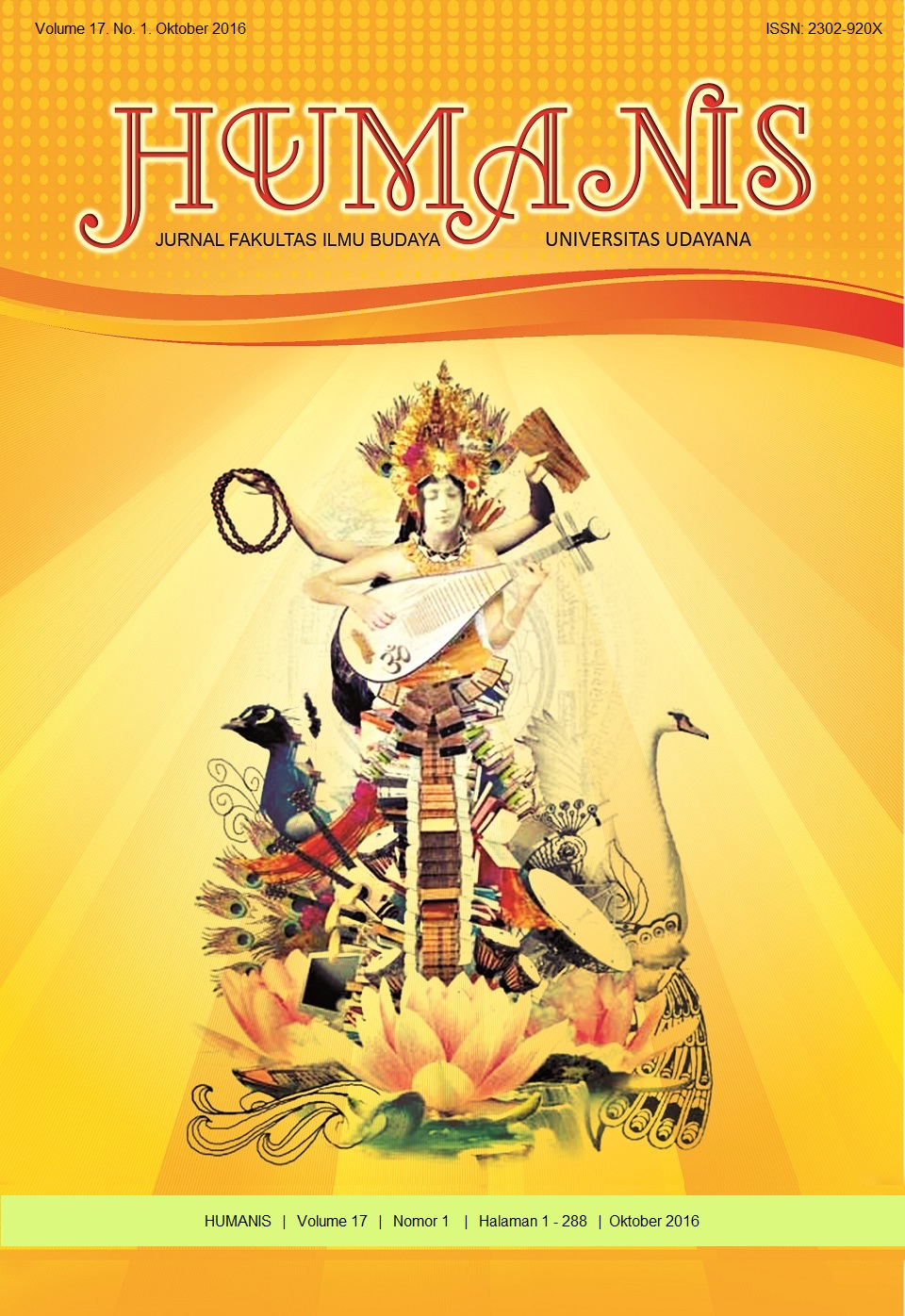Penggunaan Fukushi “Omowazu, Tsui Dan Ukkari” dalam Bahasa Jepang Sehari-Hari Oleh Orang Jepang Di Sisi, Pengosekan, Ubud Tinjauan Sintaksis Dan Semantik
Abstract
The research of how to use the adverb of omowazu, tsui and ukkari in daily Japanese language by Japanese people in Shishi, Pengosekan, Ubud aims to know the use, structure, meaning and substitution of the adverb of omowazu, tsui and ukkari from the questionnaire. The analysis of structure uses Contextual theory applied by Verhaar (2012), meanwhile, the analysis of meaning uses theory applied by Pateda (2001). According to the result of the analysis, omowazu explains something that occurs by sudden, or something that is not planned and thought. Tsui indicates that something is done unconscious, without intention, and indicates period of activities. Moreover, ukkari also has the same meaning with the adverb tsui. However, the meaning of ukarri prefers to reckless.


















